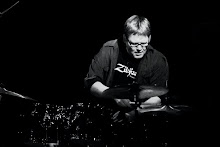By now, anybody with an internet connection, a radio, or a newspaper knows that the great songwriter/performer/producer/multi-intrumentalist Prince has passed away at the young age of 57.
Like the recent passing of David Bowie, I wouldn't call myself a huge Prince fan. I certainly owned some of his recordings, but there was a lot of his music I hadn't checked out and I never had the privilege of seeing him live. That said, like with Bowie, I found myself quite despondent of the news of his untimely death. I think one of the main reasons in both cases is that the world lost an artists, with a capital A. Let's examine some of the elements that made Prince so special, and what we as artists can learn from him.
1. Follow your own muse.
Prince always did things his way. He wrote the songs he wanted to write. He put out recordings as often as he wanted to. he dressed the way he wanted to etc. Ultimately, how we present ourselves and the music we make is our choice. Prince always exerted this control, whether what he did was popular or not.
2. Make it about the music
Again, like Bowie, but even more so, Prince was very private and really didn't volunteer much information about his personal life. He wasn't at fancy parties and premiers in New York and Los Angeles. As a result, after he passed, people are talking about his music rather than scandals. I don't think this was any accident on his part.
3. Make the presentation of your music interesting
As great as a songwriter and musician Prince was, he was also a completely captivating performer. ( As I said, I certainly never saw him live, but have seen a lot of concert footage over the years).
I can't pretend that the presence he had onstage isn't a rare thing, but I think we can all learn things from the mystic and drama he created onstage.
4. Keep exploring
Like all great artists, Prince didn't stand still. He kept evolving and trying different things. In fact, I very much liked his latest work with his all female backing band ( including great Toronto guitarist Donna Grantis). That music seems to have a bit more of a rock edge than I'd heard from him in a while, and it sounds great!
In closing, I'd like to quote myself on FaceBook. (What an ego!)
What do you do when a great artist passes on? You create more art! Let's get busy folks!



